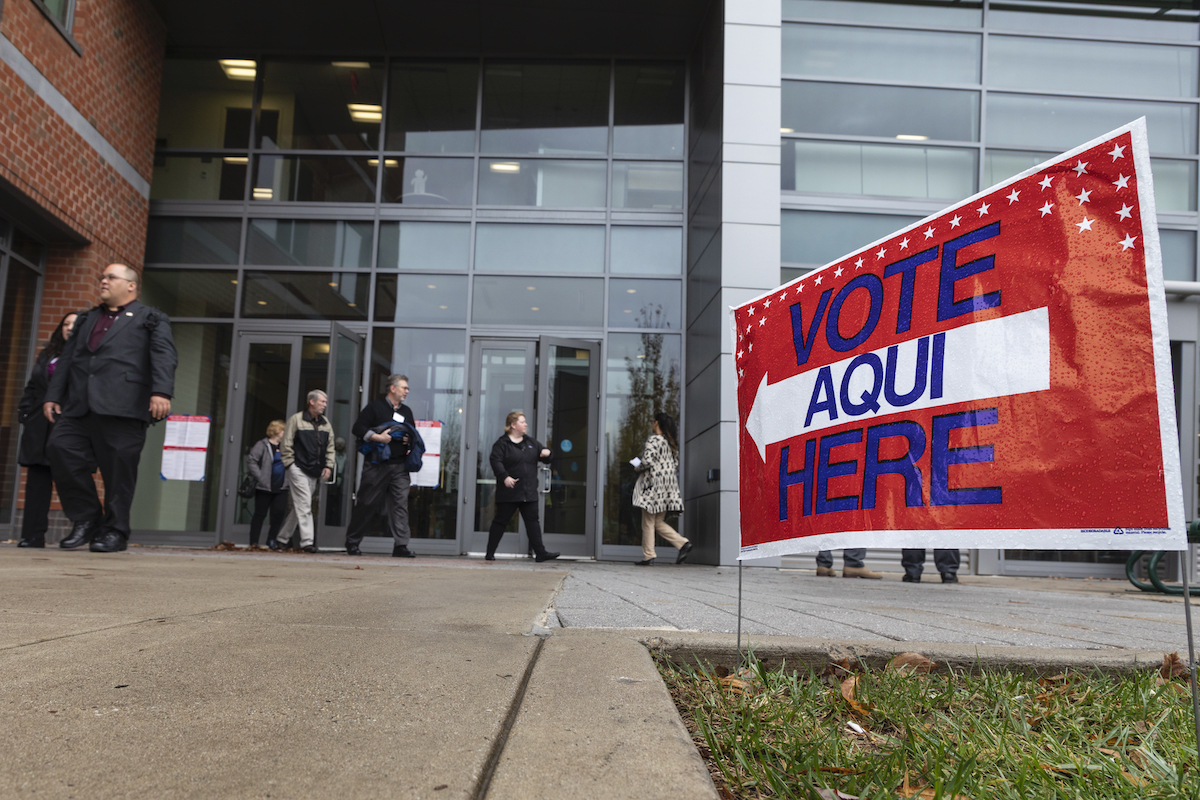
George Mason University students voted at a higher rate than the national student average in the 2020 elections, and also outperformed the average voting rates of public institutions, according to the National Study of Learning, Voting, and Engagement by the Jonathan M. Tisch College of Civic Life at Tufts University.
According to the survey, Mason students voted at a rate of 71.8% in 2020. The national rate for all institutions was 66%. The rate for public institutions was 69%.
The report comes after Mason was listed as a “best college for student voting” by Washington Monthly.
Those outcomes are the result of several factors, said Rose Pascarell, vice president for University Life at Mason, including Mason’s proximity to Washington, D.C, having a polling place on the Fairfax Campus, and a campus-wide sensibility for voter participation that the university actively cultivates.
“Our students are more engaged and more understanding of the role they play in the trajectory of the country, that their role in voting makes a difference,” Pascarell said. “One of the things we do is encourage students to see themselves as change-makers. That happens in a number of different ways—through voting, through protesting, through course-taking, through research.”
It also happens with the help of the Mason Votes program, Pascarell said, which encourages students to register and vote, helps educate students about key issues, helps brings candidates to campus, and conducts exit polling to examine opinions on the issues.
It doesn’t hurt that Mason’s Fairfax Campus is only 20 miles from Washington, D.C., said master’s student Meg Thornberry.
“Especially since a lot of Mason students are originally from the area,” said Thornberry, who is studying public health and is a member of the Mason Votes editorial board. “People just grow up with and see firsthand the process and are aware of it in a way that makes it a no-brainer to take part.”
Additionally, “We have a lot of students who come to the D.C. area because they want to get involved civically, or they want to get involved with the federal government or politics or international relations,” said Alissa Karton, assistant to the vice president and director of special projects at University Life. “That is definitely part of it.”
Some of the numbers in the study were fascinating.
Early voting at Mason increased 31 points to 32% in 2020 compared to 2016. “Not-in-person” voting rose by 20 points to 34%, with the pandemic certainly playing a role.
Voting by the 18-21 age group was at 69 percent, compared to 60 percent in 2016; the nine-point increase was the largest of any age group at the university. First- and second-year student voting rates increased nine points to 63% and 66%, respectively. Undergraduate voting rates increased from 60% to 67%.
Those results are important, the study said, because “voting is habit-forming, and young voters will usually continue as voters in subsequent elections.”
“Our proximity to D.C. is absolutely a contributing factor,” Pascarell said of Mason’s high voting turnout. “But it’s also true we try to leverage those opportunities so that students have a number of ways they can participate in what’s happening and to make their voices heard.”
